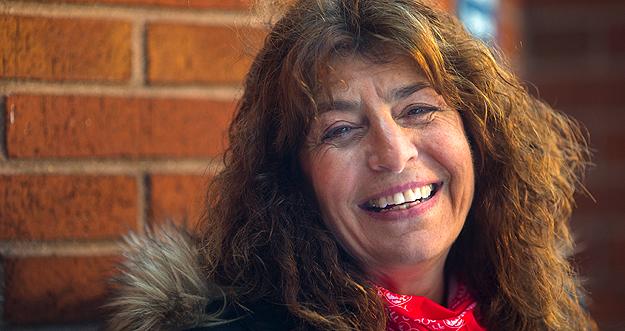A wake-up call?

We are aware that there are certain subjects or conversations that are so uncomfortable to entertain that we avoid them completely—even when the tensions are high and the issue at hand is hanging over our heads like a dark, heavy cloud.
Having the conversation with your kids about sex; with an aging parent about a plan of care; with a relative who holds a different political point of view; with a spouse about stagnation in a relationship; with a coworker, neighbor — or even a friend — about race, religion and the state of the world.
While I am not advocating that we immediately upend our lives and talk everything to death or impasse, the times we are living in demand that we engage in the excruciating process of addressing the issue of racism in our country. The rise — or the above ground emergence — of Neo-Nazis, the Ku Klux Klan and White Supremacists simply can no longer be ignored as an ugly fringe element in our nation.
So what can we do?
We need to create “safe spaces” in which people who come from different backgrounds can share their experiences, views, fears, beliefs and prejudices — all with the goal of promoting understanding and empathy. Why is this so hard to do? A safe environment requires the creation of a non-judgmental playing field and a commitment to honestly open our minds.
Since all of us — especially nurses, in spite of our education — tend to be somewhat critical, committing to a non-judgmental frame of mind is as challenging as dealing with an unknowledgeable but arrogant colleague. We live our lives with a set of assumptions — learned from a lifetime of experiences and influences. We also live our lives built on a national history of events, actions, processes and legacies that we have no INDIVIDUAL responsibility for, yet reap the rewards, as well as the penalties, for.
“History is the version of past events that people have decided to agree upon.” – Napoleon
So “our” history is very often hidden, distorted and forgotten so that those in power can convince us that the way things are—that the situations we find ourselves in — is what must be, will always be, has always been, etc. This reinforces the view that we are powerless to change things and that the best we can do is to take care of our own selves and those we care about.
We all know about — or even grew up in — families that prefer to hide childhood abuse because it is ugly, damaging, better forgotten. But what happens? Those scars fester and emerge in different ways that are far more destructive than recognizing and reconciling past abuses. The same is true for our society. We hate to think that our heroes or traditions or our collective “progress” might have an unpleasant side or back-story or even a totally different reality — because it challenges what we feel are our core values and belief systems — our ways of coping.
Nurses as healers
Racism in our society exists as an institution, built precisely on the legacy of a lot of “hidden” history. And like all oppression and abuse, its legacy, scars and its ongoing impact on the lives of ALL OF US will continue to haunt us and dominate our world until and unless we recognize it and reconcile it. I say “all of us” because oppression in any of its forms harms the oppressed, for sure, but dehumanizes the oppressor and ultimately does damage to any group or individual who reaps its benefits, even if unconsciously.
So to build an egalitarian society starts at home, in the workplace and in the community in which we live. It requires a commitment to deal with painful and unpleasant issues. It doesn’t change things overnight. But the alternative is to allow hatred and violence to consume us all and that road will only end in more tragedies and horrors.
And now what?
Many Germans ignored the Nazis post WWI. But other disgruntled countrymen, deep down in their psyches, kind of appreciated that these so-called “fanatics” were standing up for them, recognizing their value — even their superiority — as “true Germans,” and responding to their perception that the world was treating them unfairly.
Our future and our survival depend on the belief that we CAN create a loving society — if not for our generation, then at least for our children and grandchildren.
There’s no time like now to start building that future.